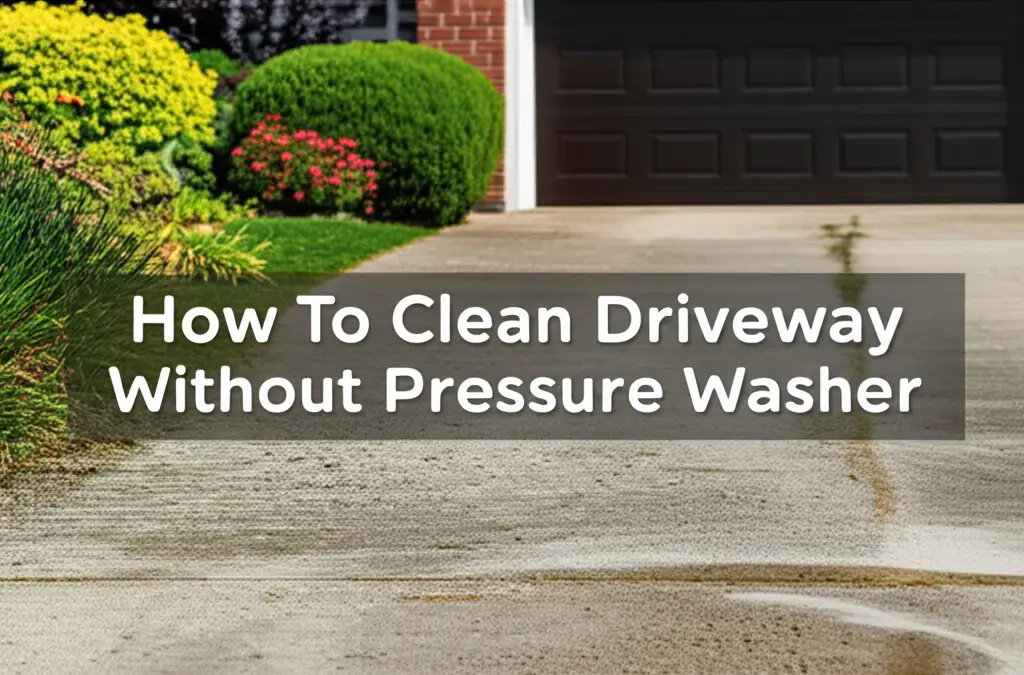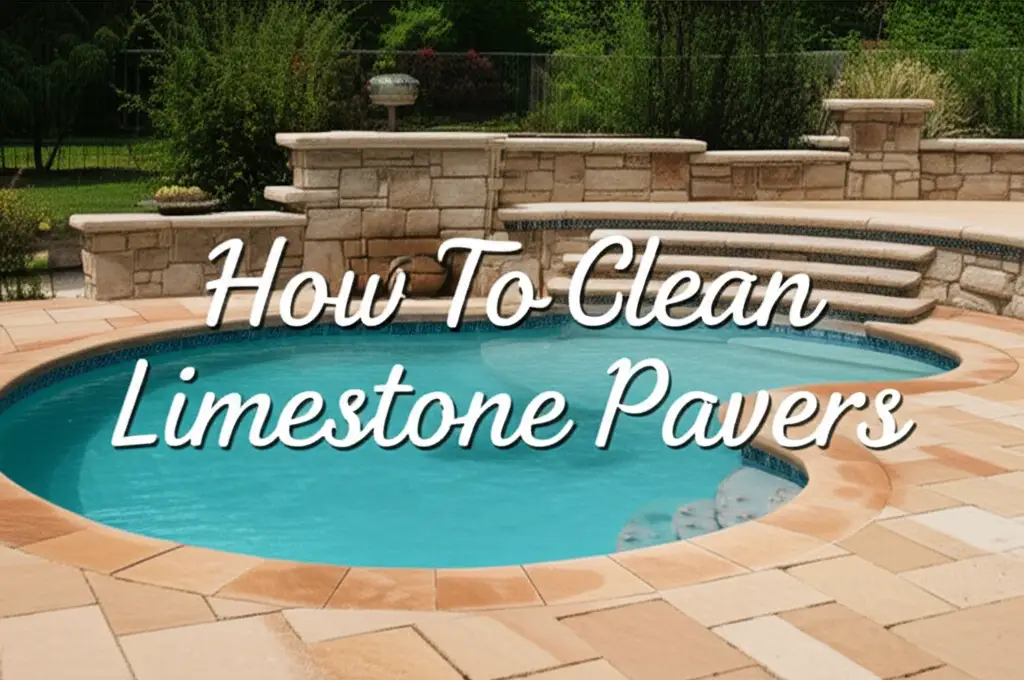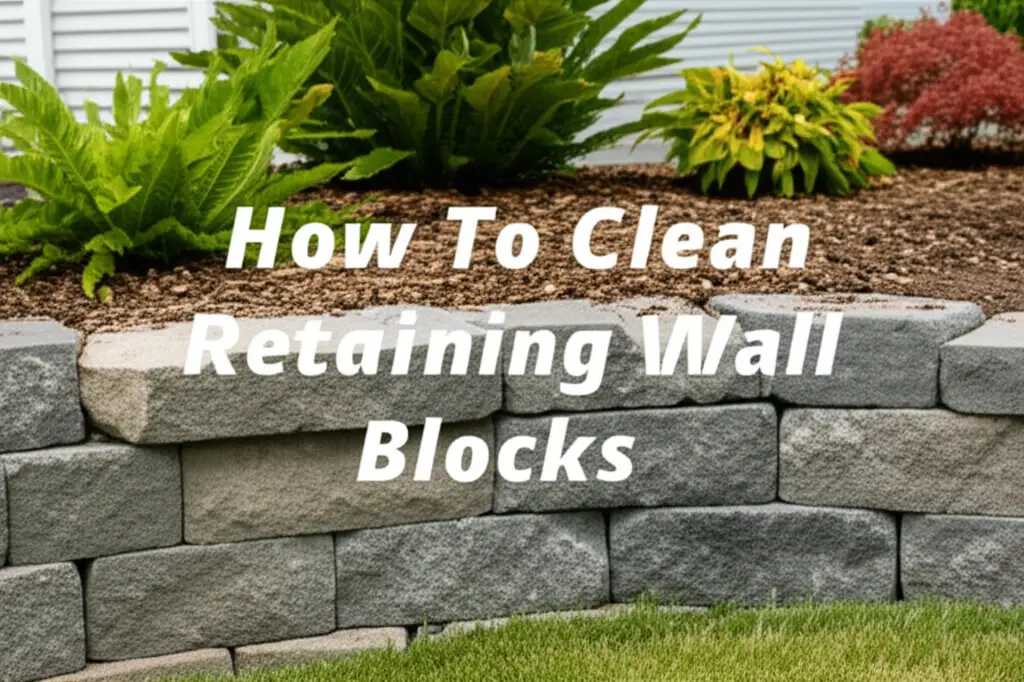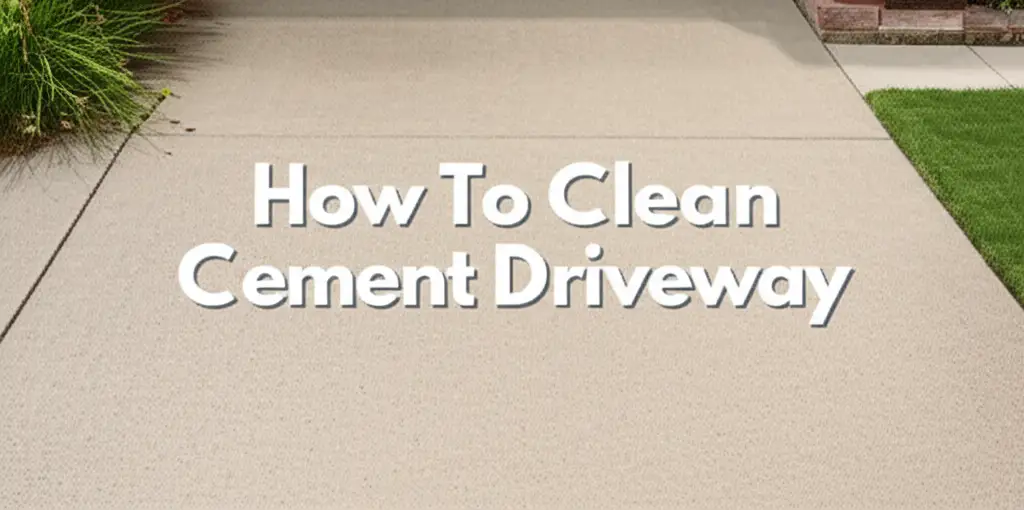· Outdoor Cleaning · 15 min read
How To Clean Pavers With Vinegar
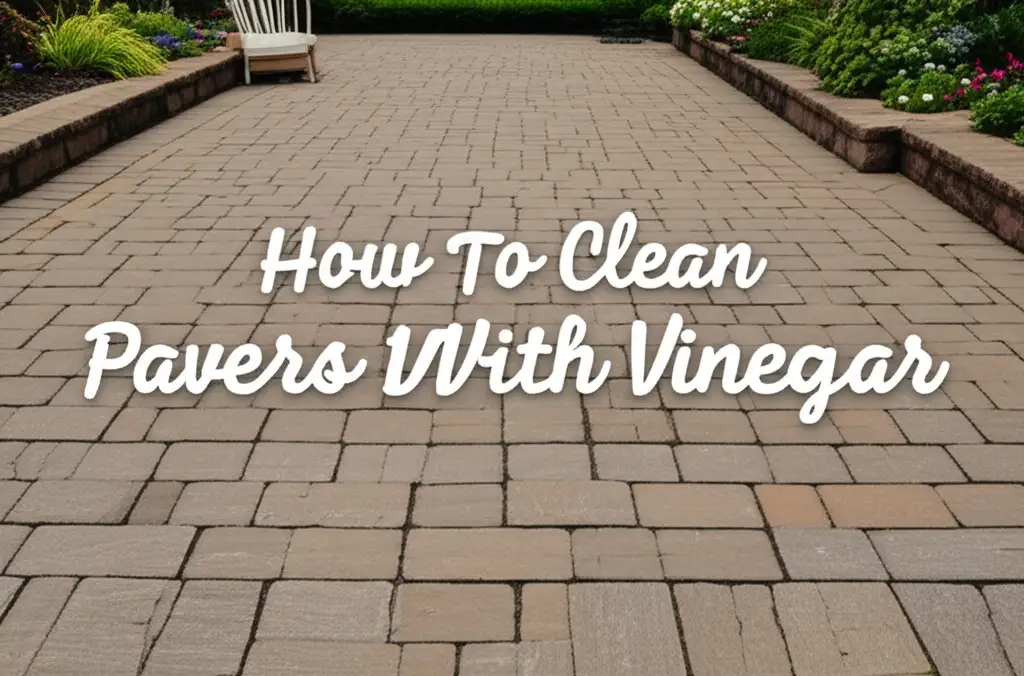
Cleaning Pavers with Vinegar: A Natural Approach
Outdoor pavers improve the look of any home. Over time, these surfaces collect dirt, grime, moss, and stains. You need a cleaning method that works well and is safe for your surroundings. Many people wonder how to clean pavers with vinegar.
Vinegar is a natural, eco-friendly cleaner. It offers a gentle yet effective way to restore your pavers. This article provides a complete guide. It helps you understand vinegar’s cleaning power. You will learn how to use it safely and effectively. We will cover general cleaning, stain removal, and maintaining your pavers. Get ready to make your outdoor spaces shine again.
Takeaway
- Assess Paver Type: Understand if your pavers are sealed or unsealed. This affects cleaning choices.
- Choose Vinegar Type: Use white distilled vinegar for most cleaning tasks. Its acidity cuts through grime.
- Prepare the Area: Clear debris and pre-rinse pavers before applying vinegar solutions.
- Apply Correctly: Use appropriate dilution ratios for general cleaning or stain treatment.
- Rinse Thoroughly: Always rinse pavers completely after cleaning with vinegar to prevent residue.
Vinegar cleans pavers effectively. Mix white distilled vinegar with water, apply it to the surface, scrub, and rinse. This method removes dirt, moss, mold, and light stains. It offers an eco-friendly and cost-effective cleaning solution.
Understanding Vinegar: The Eco-Friendly Paver Cleaner
Vinegar is a common household product. It is known for its cleaning ability. Its main component is acetic acid. This acid helps break down dirt, grease, and mineral deposits. Many people choose vinegar for outdoor cleaning tasks. It is a natural alternative to harsh chemicals.
Using vinegar for paver cleaning offers many benefits. It is non-toxic. This means it is safer for pets, plants, and the environment. It is also budget-friendly. You likely have it in your pantry already. Vinegar works on various paver materials. These include concrete, brick, and stone.
Different types of vinegar exist. For cleaning, white distilled vinegar is best. It has a higher acidity level. It also contains no dyes or sugars. This prevents staining on your pavers. Apple cider vinegar or other colored vinegars can leave marks. Always use white distilled vinegar for outdoor cleaning.
Vinegar handles common paver problems. It can loosen dirt. It also kills mold and mildew spores. Its acidic nature helps remove efflorescence, a white powdery residue. This versatility makes vinegar a powerful cleaning agent. It is a good choice for keeping your pavers clean.
Preparing Your Pavers for Vinegar Treatment
Proper preparation is important before you clean pavers with vinegar. This step ensures the best results. It also protects your surrounding landscape. Start by clearing the paver surface. Remove all loose debris. This includes leaves, twigs, and loose dirt. A stiff broom or leaf blower works well for this task.
Next, identify any problem areas. Look for specific stains like moss, mold, or rust. This helps you decide if you need a stronger vinegar solution. Check for weeds growing in cracks. Vinegar can also help with weed removal. Note areas that need extra attention.
Pre-rinse the pavers thoroughly with water. Use a garden hose with a spray nozzle. This removes surface dirt and grime. It also wets the pavers. Wetting the surface helps the vinegar solution spread evenly. It also prevents the vinegar from drying too quickly.
Gather all your cleaning tools. You will need a stiff-bristled brush. A long-handled deck brush works well for large areas. A smaller brush can handle tight spots. You also need a spray bottle or a garden sprayer. Buckets for mixing solutions are important. Wear gloves and eye protection for safety. This preparation makes your cleaning process smooth and effective.
General Cleaning: How to Clean Pavers with Vinegar for Everyday Grime
Cleaning pavers with vinegar for everyday grime is simple. It brings a fresh look to your outdoor space. This method works well for general dirt and light buildup. It keeps your pavers looking good without harsh chemicals. You will need white distilled vinegar and water.
First, create your cleaning solution. Mix equal parts white distilled vinegar and water. For example, use one gallon of vinegar with one gallon of water. Pour this mixture into a garden sprayer or a large watering can. A sprayer allows for easy and even application over a large area.
Apply the diluted vinegar solution generously to the pavers. Make sure the entire surface is wet. Let the solution sit on the pavers for about 20-30 minutes. This gives the acetic acid time to break down dirt and grime. For stubborn areas, you might let it sit a bit longer. However, avoid letting it dry completely.
After the dwell time, start scrubbing the pavers. Use a stiff-bristled brush or a deck brush. Apply firm pressure. Work in small sections if you have a large area. You will see the dirt loosening. The scrubbing action helps lift the grime from the paver surface.
Finally, rinse the pavers thoroughly with clean water. Use a garden hose with good pressure. Make sure to wash away all the vinegar solution and loosened dirt. Proper rinsing is important to prevent any residue. Your pavers will look much cleaner after this process. Repeat this general cleaning every few months to maintain your pavers.
Targeting Specific Stains: Vinegar Solutions for Paver Challenges
Vinegar is versatile for various paver stains. It can tackle more than just general dirt. Specific problems like moss, mold, efflorescence, and light rust respond well to vinegar. You just need to adjust your approach. Always test a small, hidden area first. This checks for any adverse reactions on your specific paver material.
Removing Moss and Algae with Vinegar
Moss and algae thrive in damp, shady areas. They make pavers slippery and look bad. Vinegar provides an effective solution. For moss and algae, use an undiluted white distilled vinegar solution. This stronger concentration is needed to kill the plant growth.
Apply the full-strength vinegar directly to the mossy areas. Use a spray bottle for precision. Saturate the moss thoroughly. Let the vinegar sit for at least an hour. For heavy moss, let it sit for several hours or even overnight. The moss will start to turn brown or yellow.
After the vinegar has worked, use a stiff brush to scrub the dead moss away. A pressure washer on a low setting can also help remove stubborn bits. Be careful with pressure washers; too high a setting can damage pavers. Always rinse the area thoroughly with clean water afterward. Regular application can prevent moss from returning quickly. You can find more tips on how to clean moss off pavers using various methods.
Tackling Efflorescence on Pavers
Efflorescence appears as a white, powdery substance. It is a salt deposit that comes from within the pavers. It can be unsightly. Vinegar’s acidity helps dissolve these mineral stains. For efflorescence, a 1:1 mixture of white vinegar and water is often sufficient. For tougher cases, you can use a 2:1 vinegar-to-water ratio.
Apply the vinegar solution to the affected areas. A scrub brush helps work the solution into the pores. Allow it to sit for 15-30 minutes. The vinegar will react with the salts. You might see some bubbling. This means it is working.
Scrub the area well with a stiff brush. Then, rinse the pavers completely with clean water. You may need to repeat this process. Multiple applications can be necessary for heavy efflorescence. Ensure proper drainage to prevent it from reappearing.
Dealing with Mild Stains and Grime
Vinegar can handle various other mild stains. These include light rust spots or general discoloration. For rust, mix a paste of baking soda and vinegar. Apply this paste directly to the rust stain. Let it sit for an hour. Scrub gently and rinse. For overall discoloration, a 1:1 vinegar and water mix often works. Apply, scrub, and rinse.
Vinegar is a good choice for removing mold and mildew too. Its acidic properties kill these growths. For mold, use a solution of half vinegar, half water. Spray it on the moldy areas. Let it sit for 30 minutes. Scrub and then rinse well. You can learn more about general how to clean mold with vinegar for various surfaces. Remember, always test in a small area first to ensure no damage occurs.
Advanced Vinegar Methods for Stubborn Paver Issues
Sometimes, standard vinegar solutions need a boost. Stubborn stains or heavy buildup on pavers require a more powerful approach. Combining vinegar with other natural cleaners can increase its effectiveness. These advanced methods help you tackle even tougher paver problems. Always remember to wear protective gear.
One popular advanced method uses vinegar and baking soda. This combination creates a fizzy reaction. This reaction helps lift deeply set dirt and stains. Baking soda is an abrasive. It also helps neutralize odors. To use this method, first wet the paver area. Then, sprinkle a generous amount of baking soda over the stain. Next, spray or pour undiluted white distilled vinegar directly onto the baking soda.
The mixture will bubble and fizz. This is a normal chemical reaction. Allow it to sit for 15-30 minutes. The bubbling action works to loosen the grime. After the fizzing stops, scrub the area vigorously with a stiff brush. Finally, rinse the pavers thoroughly with clean water. This method is especially effective for grease spots or stubborn dirt. If you want to know more about this powerful duo, check out how to clean with vinegar and baking soda.
For very tough stains or extensive moss, a stronger vinegar concentration might be needed. While undiluted white vinegar is powerful, you can also look for cleaning vinegars. These have higher acetic acid percentages. Always use caution with stronger solutions. They can etch sensitive surfaces if left too long. Apply directly to the stubborn area. Let it sit for a shorter period, maybe 10-15 minutes. Scrub immediately and rinse quickly. Repeated treatments can be more effective than one very strong application.
Another method for deeply ingrained grime involves multiple applications. Apply your vinegar solution, scrub, and rinse. If the stain remains, repeat the process. Sometimes, it takes several attempts to fully remove old stains. This is especially true for oil spots that have soaked into the paver. For oil stains, vinegar may only work on fresh, light spills. Heavy oil requires specialized cleaners. To understand better how to deal with more severe oil issues, you might want to learn how to clean oil off pavers using other methods.
Consider using a non-abrasive scrubber for delicate pavers. Some natural stone pavers can be more sensitive. A soft brush combined with patience often yields good results. Always work in small sections. This ensures you can rinse before the vinegar dries on the paver surface. These advanced methods help restore your pavers.
After Cleaning Care: Maintaining Your Clean Pavers
Cleaning pavers with vinegar is a great first step. But proper after-cleaning care helps keep them looking great longer. This maintenance prevents quick re-soiling and reduces future cleaning efforts. A clean paver surface makes your outdoor areas more enjoyable.
The most important step after cleaning is thorough rinsing. Rinse your pavers completely with clean water. Use a garden hose with a strong spray. Make sure to wash away all traces of the vinegar solution. Any left-over vinegar can dry and leave a residue. This residue might attract more dirt or even slightly alter the paver color over time. Rinse until the water runs clear from the surface.
Allow the pavers to dry completely after rinsing. Air drying is usually sufficient. On sunny days, this happens quickly. Avoid walking on wet pavers as they can be slippery. Ensure good air circulation if possible. This helps the pavers dry evenly and prevents new mildew growth.
Once the pavers are clean and dry, consider applying a paver sealer. Sealing pavers offers excellent long-term protection. A sealer creates a barrier on the paver surface. This barrier helps repel water, oil, and other potential stains. It also inhibits moss and algae growth. Sealing makes future cleaning much easier. It extends the life and beauty of your pavers. Always choose a sealer appropriate for your specific paver material. Follow the manufacturer’s instructions carefully for application.
Ongoing prevention also plays a role in paver maintenance. Regularly sweep your pavers to remove loose leaves and dirt. This prevents organic matter from breaking down and staining the surface. Address spills immediately to prevent them from setting. Keep surrounding plants trimmed. This reduces shade and moisture retention, which encourages moss and mold. You should also consider cleaning methods that work for pavers near water. For example, learning how to clean pavers around pool can provide specialized tips for those areas.
By following these after-cleaning steps, you extend the fresh look of your pavers. Regular upkeep makes deep cleaning less frequent. It ensures your outdoor areas remain inviting and attractive.
Safety and Considerations When Cleaning Pavers with Vinegar
While cleaning pavers with vinegar is natural, safety remains important. Understanding certain considerations ensures a successful and safe cleaning process. My goal is to guide you in using vinegar effectively without harm. Always approach cleaning tasks with care.
First, protect yourself. Vinegar is acidic. It can irritate skin and eyes, especially in higher concentrations. Always wear protective gloves when handling vinegar solutions. Safety glasses are also a good idea. This prevents splashes from reaching your eyes. If vinegar gets into your eyes, rinse them immediately with plenty of water.
Next, consider your surrounding landscape. Vinegar is an herbicide. It kills plants. Be careful when applying vinegar near garden beds or lawns. Spraying too broadly can damage desired vegetation. If you are worried, cover nearby plants with plastic sheeting. Or, use a watering can for more precise application around plant roots. After cleaning, rinse the area well. This dilutes any runoff that might affect plants. You can also use vinegar for cleaning brick surfaces. Knowing how to clean bricks with vinegar might give you more insights into safe application methods for similar materials.
Always perform a spot test. Before cleaning the entire paver area, test a small, hidden section. Apply the vinegar solution you plan to use. Let it sit for the recommended time. Then rinse it off. Check for any discoloration or damage after it dries. This step confirms that the vinegar solution is safe for your specific paver type. Some natural stone pavers are more sensitive to acids.
Know when not to use vinegar. While vinegar is great for many stains, it has limits. It is not ideal for heavy oil or grease stains. These require specialized degreasers. Vinegar can also struggle with deep-set rust. For these tough stains, stronger commercial cleaners may be necessary. Do not use vinegar on unsealed natural stone like marble or limestone. The acid can etch these softer stones permanently.
Finally, ensure proper ventilation if using vinegar in an enclosed area like a patio with walls. The fumes can be strong. Outdoors, this is less of an issue. However, always work in a well-ventilated space. Cleaning pavers with vinegar offers a green alternative. By following these safety tips and considerations, you can achieve sparkling clean pavers without worry.
Frequently Asked Questions
Can vinegar damage pavers?
Vinegar is generally safe for most concrete and brick pavers when diluted and used correctly. Undiluted vinegar, especially if left for extended periods, can etch or discolor some sensitive natural stone pavers like marble or limestone. Always test in a small, inconspicuous area first to ensure compatibility.
How often should I clean my pavers with vinegar?
The frequency depends on dirt buildup and local conditions. For general maintenance, cleaning pavers with a diluted vinegar solution every 3-6 months is often sufficient. For high-traffic areas or areas prone to moss and mold, more frequent cleaning, perhaps monthly, may be beneficial.
Is vinegar better than bleach for cleaning pavers?
Vinegar is often preferred over bleach for paver cleaning. Vinegar is eco-friendly, biodegradable, and safer for surrounding plants and pets. Bleach can harm landscaping, corrode some materials, and release strong fumes. Vinegar effectively removes mold, moss, and mineral deposits, offering a gentler alternative.
Can vinegar remove rust stains from pavers?
Vinegar can remove light or fresh rust stains from pavers. For these, a paste of vinegar and baking soda applied directly to the stain can be effective. However, for old or deep-set rust stains, vinegar may not be strong enough. You might need a specialized rust remover for tougher cases.
Will vinegar kill weeds in paver cracks?
Yes, undiluted white distilled vinegar can act as a natural weed killer. The acetic acid in vinegar dehydrates and kills small weeds. Spray it directly on the weeds in paver cracks, avoiding desirable plants. It works best on young, tender weeds. Repeat applications may be necessary.
Do I need to seal pavers after cleaning with vinegar?
Sealing pavers after cleaning is highly recommended. While not strictly necessary, a sealer protects the pavers from future stains, water damage, and inhibits the growth of moss and mold. It also makes future cleaning much easier and helps maintain the paver’s appearance longer.
Conclusion
Cleaning pavers with vinegar offers a smart, eco-friendly solution for maintaining your outdoor surfaces. We have explored the power of white distilled vinegar. It tackles everything from general grime to specific issues like moss, mold, and efflorescence. My aim was to equip you with the knowledge and steps needed to achieve brilliant results.
Remember the key takeaways. Always prepare your pavers properly. Choose the right vinegar concentration for the task. Apply, scrub, and most importantly, rinse thoroughly. These simple steps ensure your pavers not only look great but also stay protected. Regular maintenance, including sealing, will extend their beauty. Take pride in your clean, naturally maintained outdoor spaces. You have the tools now to keep your pavers sparkling clean with vinegar.
- paver cleaning
- vinegar cleaner
- outdoor maintenance
- eco-friendly cleaning
- DIY cleaning solutions

